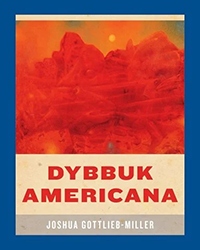In American Jewish Thought Since 1934: Writings on Identity, Engagement & Belief editors Michael Marmur and David Ellenson have assembled a diverse array of reflections by Jewish American thinkers. A volume in the Brandeis Library of Modern Jewish Thought, it features over seventy men and women who have contributed to American Jewish thought since the 1930s, excerpting their seminal essays and books on topics including God, revelation, spirituality, politics, the Holocaust, Israel, gender, and peoplehood.
Marmur, associate professor of Jewish Thought at Hebrew Union College-JIR in Jerusalem, and Ellenson, chancellor emeritus at HUC-JIR and professor emeritus at Brandeis, consciously chose relatively brief selections so as to include a larger number of thinkers. By the nature of the project, as they admit, certain “significant voices” had to be left out. Nevertheless, the editors have done a commendable job of gathering writing that is inspiring and critical, passionate and powerful, insightful and humorous, and of providing useful framing introductions to each section.
This array of voices is evident from the opening section: Mordecai Kaplan’s conception of God (“Whatever a civilization values highly it views as, in some measure, a manifestation of God in human life”) sits alongside Abraham Joshua Heschel’s (“God means: What is beyond our soul is beyond our spirit … He is at the heart of all, eager to receive and eager to give”), as well as numerous reflections on the purported “death of God,” and meditations on the concept of “Shekhinah” as reflecting God’s feminine essence.
Orthodox rabbis, including Marvin Fox, Aharon Lichtenstein and Joseph B. Soloveitchik (whose seminal Halakhic Man is excerpted) join liberal thinkers Judith Butler and Judith Plaskow, resulting in some — presumably purposefully — jarring juxtapositions. For example, Butler’s critique of Zionism (“My proposal is that the vast and violent hegemonic structure of political Zionism most cede its hold … ) immediately precedes Ruth Wisse’s reflection on “Jews and Power,” which begins “Arab leaders created the crisis for which they blamed the Jews.” And one imagines that Jill Jacobs, the head of T’ruah, and the extreme-right wing Meir Kahane are rarely mentioned in the same context, let alone found next to each other in a reader.
In the volume’s final selection, Noam Pianko, author of Jewish Peoplehood: An American Innovation, suggests that Jewish peoplehood is “open to reinvention and transformation.” As Marmur and Ellenson have so assiduously demonstrated, defining and arguing over what American Judaism can and should be is a tradition unto itself.
Dr. Stu Halpern is Senior Advisor to the Provost of Yeshiva University. He has edited or coedited 17 books, including Torah and Western Thought: Intellectual Portraits of Orthodoxy and Modernity and Books of the People: Revisiting Classic Works of Jewish Thought, and has lectured in synagogues, Hillels and adult Jewish educational settings across the U.S.




